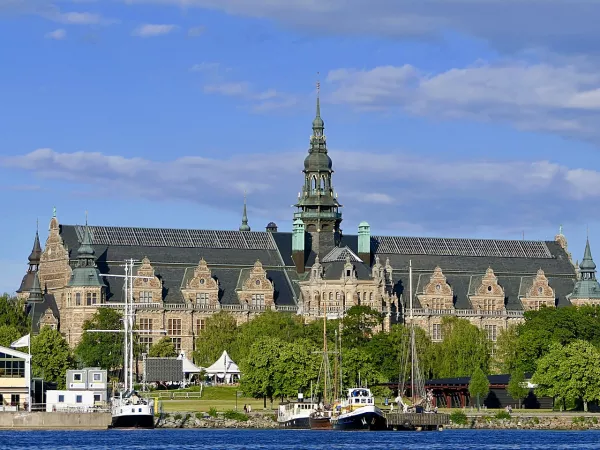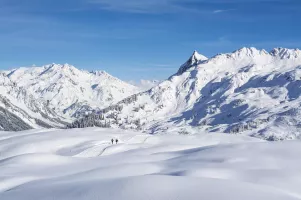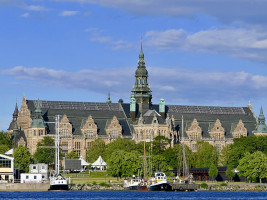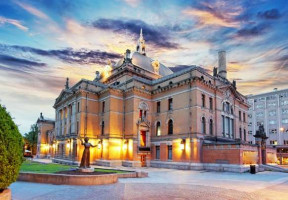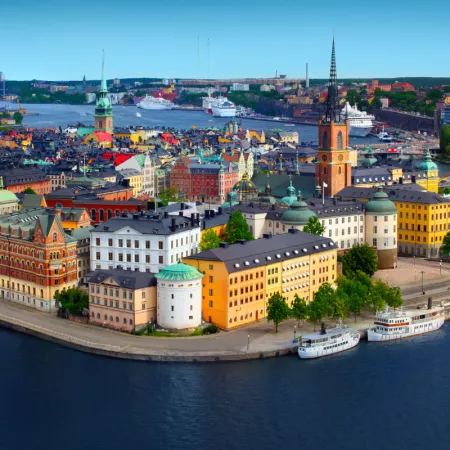
Sweden
Duration
5 to 10 Days
5 to 10 Days
Best time to visit
Jun-Aug
Jun-Aug
Theme
Hill Station, Adventure, Heritage, Waterfront, Wildlife
Hill Station, Adventure, Heritage, Waterfront, Wildlife
Sweden Travel Guide
Sweden, located in Northern Europe, is famous for its stunning natural landscapes, including forests, lakes, and coastal islands. With a rich history dating back to the Vikings and a reputation for design innovation and sustainability, Sweden is a top destination for travelers seeking a unique and eco-friendly experience.Top Attractions in Sweden
- Stockholm's Old Town (Gamla Stan)
- Icehotel in Jukkasjärvi
- The Northern Lights in Abisko National Park
- Vasa Museum in Stockholm
- Gothenburg's Archipelago
Sweden is Famous for
Northern Lights and Icehotel experiences.Top Attractions in Sweden
- Exploring Stockholm's charming Old Town
- Experiencing the unique Icehotel in Jukkasjärvi
- Witnessing the magical Northern Lights in Abisko National Park
- Visiting the well-preserved Vasa Museum in Stockholm
- Relaxing in the picturesque Gothenburg Archipelago
What's Great about Travelling to Sweden?
- Opportunity to witness the mesmerizing Northern Lights
- Rich cultural history and Viking heritage
- Beautiful natural landscapes for outdoor enthusiasts
What's Not So Great about Travelling to Sweden?
- High cost of living and travel expenses
- Cold winters may not be suitable for everyone
- Limited daylight hours during the winter months
Travel Tips for Sweden
- Check visa requirements before traveling
- Use public transportation or bike for eco-friendly travel
- Stay safe by being mindful of pickpockets in tourist areas
Important Sweden trip information
- Ideal Duration: 7-10 days to explore major cities and natural attractions
- Best Time to Visit: Summer months for milder weather and longer days
- Nearby Airports and Railway Stations: Stockholm Arlanda Airport, Gothenburg Landvetter Airport, Stockholm Central Station
Top 1 Places to visit in Sweden
Per Person
1,699
*EXCLUDING APPLICABLE TAXES 5.0 Ratings
( 2555 Reviews )
( 2555 Reviews )
Per Person
5,598
*EXCLUDING APPLICABLE TAXES 5.0 Ratings
( 2555 Reviews )
( 2555 Reviews )
Per Person
1,699
*EXCLUDING APPLICABLE TAXES 5.0 Ratings
( 2555 Reviews )
( 2555 Reviews )
Per Person
899
*EXCLUDING APPLICABLE TAXES 5.0 Ratings
( 2555 Reviews )
( 2555 Reviews )
Per Person
62,932
*EXCLUDING APPLICABLE TAXES 4.9 Ratings
( 200 Reviews )
( 200 Reviews )
Per Person
1,83,252
*EXCLUDING APPLICABLE TAXES 4.9 Ratings
( 200 Reviews )
( 200 Reviews )
FAQ's on Sweden
Q1: What is the best time to visit Sweden?
The best time to visit Sweden is during the summer months from June to August when the weather is mild, and the days are long. This is also the peak tourist season with many outdoor events and festivals taking place. If you prefer winter activities like skiing or witnessing the Northern Lights, then the winter months from December to February are ideal. Spring and autumn offer beautiful landscapes with colorful foliage but be prepared for cooler temperatures.
Q2: Do I need a visa to travel to Sweden?
Travelers from the EU/EEA countries do not need a visa to visit Sweden for stays up to 90 days. However, visitors from other countries may require a Schengen visa. It's important to check the specific visa requirements based on your nationality before traveling to Sweden.
Q3: What are the must-visit attractions in Sweden?
Some of the must-visit attractions in Sweden include Stockholm's Gamla Stan (Old Town), the Vasa Museum, Abisko National Park for northern lights, the Icehotel in Jukkasjärvi, the UNESCO-listed Visby, and the stunning archipelago of Gothenburg.
Q4: Is Sweden a safe place to travel?
Sweden is generally considered a safe country for travelers. However, it's advisable to take standard precautions against petty crimes, especially in tourist areas. Avoiding unlit and isolated areas at night is recommended, and always keep an eye on your belongings in crowded places.
Q5: What is the local currency in Sweden and can I use credit cards?
The local currency in Sweden is the Swedish Krona (SEK). Credit cards are widely accepted in most shops, restaurants, and hotels, but it's also good to have some cash on hand for smaller transactions. ATMs are easily found in cities and towns.
Q6: What is the local cuisine like in Sweden?
Swedish cuisine is known for dishes like meatballs, herring, gravlax (cured salmon), and traditional fika (coffee break with pastries). For adventurous eaters, try reindeer meat or a traditional Swedish smörgåsbord. Vegetarian and vegan options are also widely available in most restaurants.
Q7: What transportation options are available in Sweden?
Sweden has an efficient public transportation system including buses, trains, trams, and ferries. In cities like Stockholm and Gothenburg, you can easily get around using public transport. Taxis are also available but can be expensive. Renting a car is a good option for exploring rural areas.
Q8: Are there any cultural norms or etiquette I should be aware of when visiting Sweden?
In Sweden, punctuality is highly valued, so be on time for appointments and meetings. It's also customary to take off your shoes when entering someone's home. Swedes appreciate personal space and privacy, so avoid being too loud in public spaces. When dining out, it's polite to say "tack för maten" (thank you for the food) after a meal.
Q9: I am a travel agent. How can I buy travel leads of Sweden?
Register yourself as a travel agent at agents.tripclap.com and then you can buy travel leads to Sweden once your account is approved. For more details contact our support team at +91-8069186564 or support@tripclap.com
